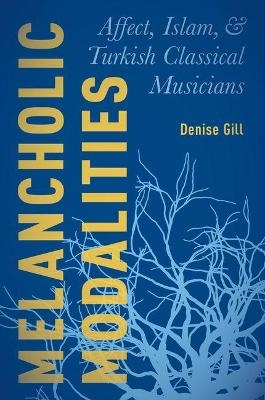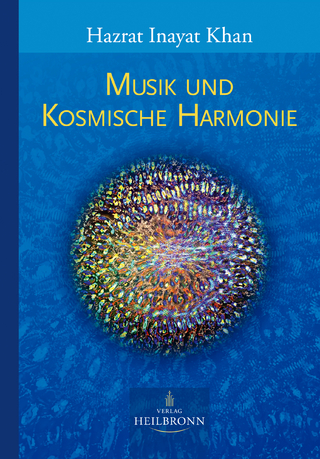
Melancholic Modalities
Oxford University Press Inc (Verlag)
978-0-19-049501-5 (ISBN)
Today, teachers and performers of Turkish classical music intentionally cultivate melancholies, despite these affects being typically dismissed as remnants of the Ottoman Empire. Melancholic Modalities is the first in-depth historical and ethnographic study of the practices socialized by musicians who enthusiastically teach and perform a present-day genre substantially rooted in the musics of the Ottoman court and elite Mevlevi Sufi lodges. Author Denise Gill analyzes how melancholic music-making emerges as pleasurable, spiritually redeeming, and healing for both the listener and performer.
Focusing on the diverse practices of musicians who deploy and circulate melancholy in sound, Gill interrogates the constitutive elements of these musicians' modalities in the context of emergent neoliberalism, secularism, political Islamism, Sufi devotionals, and the politics of psychological health in Turkey today. In an essential contribution to the study of ethnomusicology and psychology, Gill develops rhizomatic analyses to allow for musicians' multiple interpretations to be heard. Melancholic Modalities uncovers how emotion and musical meaning are connected, and how melancholy is articulated in the world of Turkish classical musicians. With her innovative concept of "bi-aurality," Gill's book forges new possibilities for the historical and ethnographic analyses of musics and ideologies of listening for music scholars.
Denise Elif Gill is an ethnomusicologist specializing in the musics of Turkey and former Ottoman territories. Her research engages music-making and affective practice, Islam, health, gender/sexuality, sound studies, and post-humanism. Her work has been funded by Fulbright and by the American Council of Learned Societies (ACLS).
Table of Contents
List of Figures
List of Examples
Acknowledgements
Conventions
Preface
Introduction
Melancholic Modalities
Rhizome One: "Turkish Classical Music"
Rhizome Two: Repertoires of Melancholies
Rhizome Three: The Practice of Affect
Rhizome Four: The Islamic Roots of Musicians' Melancholic Routes
Following the Rhizomes of Melancholic Modalities
Chapter One - The Melancholic State of Turkish Classical Music
Reforms as Roots
Cultural Policies and the Politics of Naming
Ottoman Music and the Turkish Nation-State
"Shaping Ears and Hearts": Emergent Media Practices
Institutional Changes for Practices of Musical Transmission
Neoliberalism, Islamic Movements, and the Privileges of Privatization
Death of a Genre
Chapter Two - Separation, the Sound of the Rhizomatic Ney, and Sacred Embodiment
Sufism as Separation
Hu as Sound
Hu as Instrument Technique
Hu as Sacred Embodiment
Hu as Istanbul
From Life to Death and Sound to Silence
Chapter Three - Melancholic Genealogies: Rhizomatic Listening and Bi-Aurality in Practice
Learning Melancholy, Learning Love
Understanding Mesk
Learning from a Master
Learning with Notation
Becoming Your Lineage
Bi-Aurality and the Problem of Assumed Listening Geographies
Genealogy, Orientalism, and Orientations
Listening Like a Ney
Case Studies: Listening Rhizomatically to Me?k Lineages
Learning Music as the Practice of Melancholy
Chapter Four -- Boundaries of Embodiment in Sounded Melancholy
Rendering Melancholy Musical
Embodying Gender, Melancholy, and the Boundaries Between
The Body's Boundary: Melancholic Musicking and Tears
Sema and Sama'
Conclusion: Living with the Boundary
Chapter Five -- Melancholic Musicking, Healing, and Reparation
Melancholy as Illness
Musical Modes as Music Therapy
Melancholy and Health between "East" and "West"
Iconic Melancholic Musicians: Neyzen Tevfik
Melancholic Musicking: "There is No Medicine"
Musicking as Food for the (Melancholic) Soul
Suffering as Remedy: What to Take Away from Melancholic Musicking
Conclusion -- Affect in Ethnomusicology and Beyond
Bringing the Rhizomes of Turkish Classical Musicians to Bear beyond the Academy
Bibliography
Discography
| Erscheinungsdatum | 22.06.2017 |
|---|---|
| Verlagsort | New York |
| Sprache | englisch |
| Maße | 155 x 231 mm |
| Gewicht | 408 g |
| Themenwelt | Kunst / Musik / Theater ► Musik ► Musiktheorie / Musiklehre |
| Kunst / Musik / Theater ► Musik ► Pop / Rock | |
| Geisteswissenschaften ► Geschichte ► Regional- / Ländergeschichte | |
| Geisteswissenschaften ► Religion / Theologie | |
| ISBN-10 | 0-19-049501-4 / 0190495014 |
| ISBN-13 | 978-0-19-049501-5 / 9780190495015 |
| Zustand | Neuware |
| Informationen gemäß Produktsicherheitsverordnung (GPSR) | |
| Haben Sie eine Frage zum Produkt? |
aus dem Bereich


